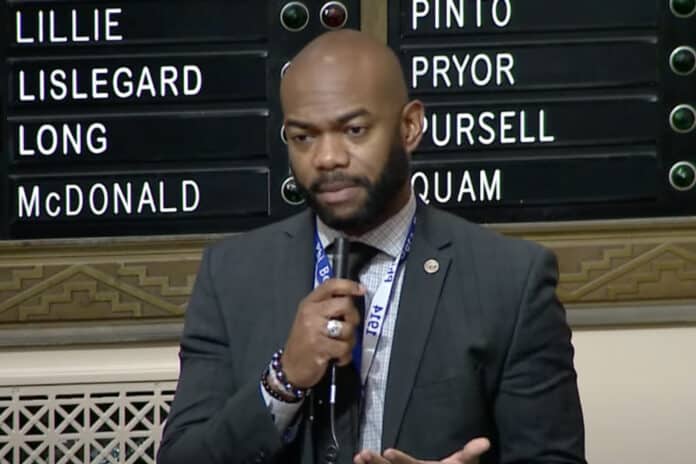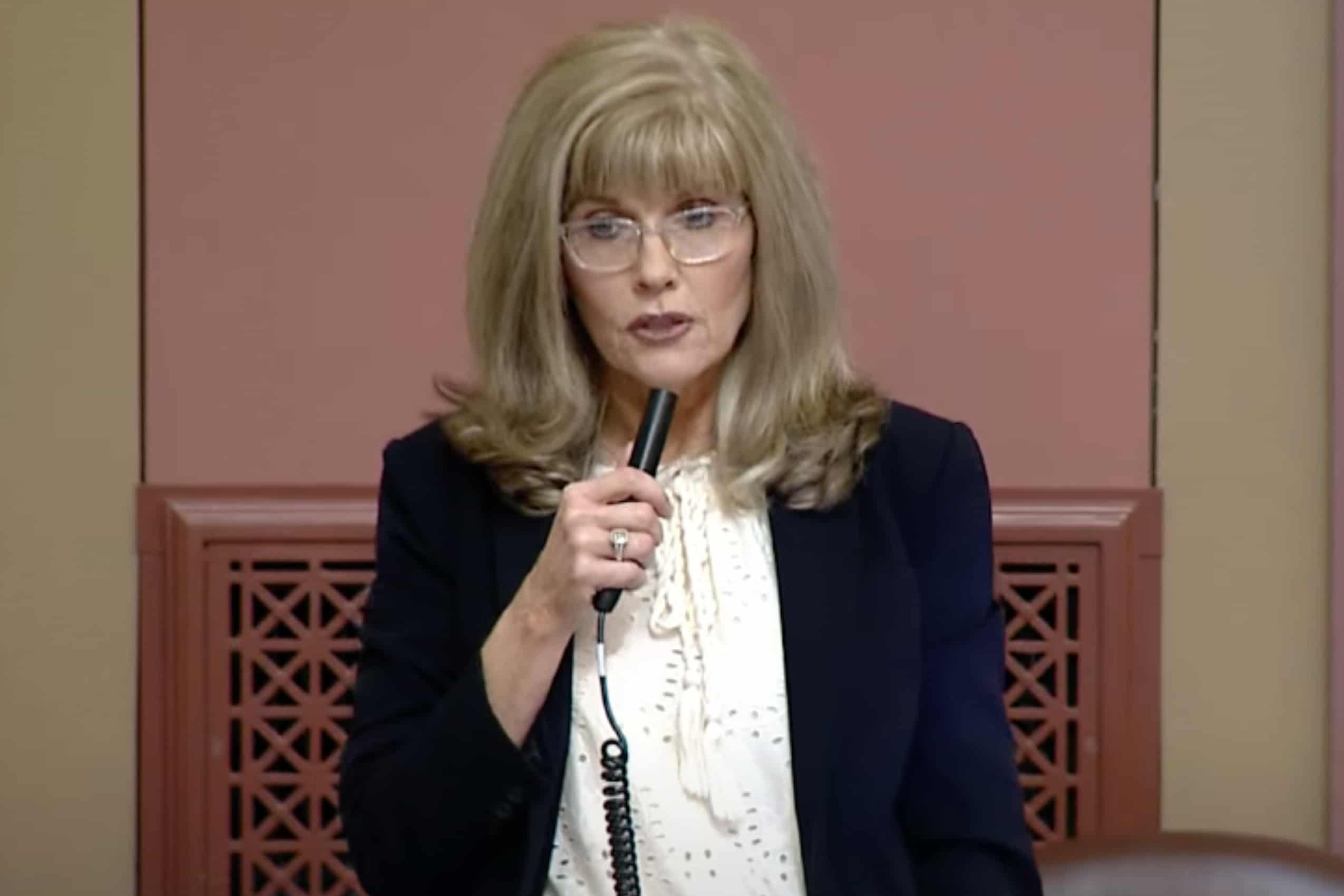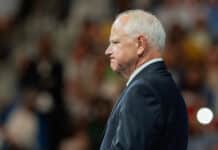
The latest iteration of ranked-choice voting legislation — that’s been exclusively pushed by DFLers at the Capitol in recent years — failed in the final hours of session on Sunday.
And three Democrat state representatives helped sink the bill in a vote on the House floor.
HF3276 would give all cities, counties and school districts across Minnesota the ability to implement ranked-choice voting for their elections. But with just 66 DFL legislators voting to support the “local options” ranked-choice voting proposal on the last day of session, the bill fell short of the 68 votes required to pass in the House of Representatives.
The three House DFLers who cast ‘no” votes were: Gene Pelowski of Winona, Rick Hanson of South St. Paul and Michael Nelson of Brooklyn Park — none of whom rose to explain their opposition to the bill during a floor debate.
News that the bill had failed on the House floor was disappointing to professional and volunteer activists with FairVote Minnesota, an organization that takes in well more than $1 million annually to help turn Minnesota into a ranked-choice voting state, among other progressive voter reform issues it champions.
“We are disappointed that the RCV Local Option bill fell short of the votes needed to pass today. We are extremely grateful to Speaker Melissa Hortman for prioritizing this discussion and bringing the bill forward, Chief Author Cedrick Frazier for his unwavering leadership, and all the members who voted in support,” the organization wrote in a statement shortly after the bill failed on the House floor Sunday. “Minnesota communities, legislators, and voters are seeking the option to use RCV, and we are committed to making this possible and securing the support necessary for a future vote.”
Last year Frazier and Sen. Kelly Morrison, DFL-Deephaven, carried a bill that would have implemented RCV for state and federal elections in Minnesota. That bill never made it to the floor in either chamber.
Currently, only municipalities that are self-governed by charter can implement ranked-choice voting, and that must be done by a voter-approved ballot referendum. While just 107 of the state’s 853 cities are “home-rule charter” cities, they still make up more than 12 percent of municipalities in Minnesota. The others are considered statutory municipalities, and in order for those local governments (and others like counties and school districts) to change their voting system, they would have to approve it locally and then petition the legislature to grant the change to RCV as a method for electing their local representation.
Two Democrats from swing districts voted ‘yes’ to RCV
Two Democrats from Greater Minnesota swing districts that could flip this November voted for the bill. They are Dan Wolgamott of St. Cloud and Dave Lislegard of Aurora.
Bill author Rep. Cedrick Frazier, DFL-New Hope, scaled back the proposal earlier this month that would limit local elected government bodies to bringing a RCV ballot referendum before voters in their community. When he introduced HF3276 in March, the measure would have given city councils, school boards and county commissioners the ability to enact RCV by a simple majority vote.
While pitching the bill on the House floor Sunday, Frazier erroneously claimed that “now only 1 percent of our cities in the state of Minnesota have the opportunity to implement ranked-choice voting.”
While bill sponsors and activists continue to make the claim that ranked-choice voting will lead to less polarized and divisive elections wherever it is implemented, a handful of studies and analyses find that inconclusive.
Last year a study of ranked-choice voting published by two scholars at the University of Minnesota concluded that there is “little evidence” to support claims by some RCV proponents that the system stems the tide of political polarization.
“A particularly sophisticated analysis found that RCV actually increased animosity among Democrats and Republicans compared to our current system,” said the report, co-authored by political scientist and U of M Humphrey School of Public Affairs faculty member Larry Jacobs.
Republicans criticize bill as ‘unserious’
During floor debate on the bill Sunday, Rep. Mike Freiberg, DFL-Golden Valley, made the case “that this is just a local control bill” and said it “has worked effectively in other cities, states and other countries.”
“Ranked-choice voting is a good option that makes campaigns more positive,” Freiberg said.

Frazier pointed to a gaggle of RCV activists in the House gallery as emblematic of the groundswell of constituents who have been asking for ranked-choice voting in their communities.
But Rep. Peggy Scott, R-Andover, pointed out that she has received just two emails from constituents during her 15 years at the legislature on the subject.
“Two of my voters want ranked-choice voting,” Scott said. “This is unserious, people. We have more serious tasks ahead of us before we can finish our work here in the legislature today,” Scott added, noting the House and Senate were up against the clock in the final hours of session.
DFLers who spoke in favor of the legislation include Reps. Nathan Coulter of Bloomington, and Larry Kraft of St. Louis Park. Both are former city council members whose communities passed RCV via voter referendum.
“I do not consider myself a zealot when it comes to ranked-choice voting,” said Coulter, a former longtime DFL Senate staffer who said he was once “deeply, deeply opposed to ranked-choice voting” when FairVote Minnesota activists first began pushing for it in Bloomington.
As FairVote Minnesota recalibrates its goals for RCV in the state legislature, it has found partners in Congress, including U.S. House Reps. Dean Phillips and Angie Craig, both Democrats from Minnesota.
On Friday, Phillips reintroduced the “Voter Choice Act” in the U.S. House of Representatives. The proposal would provide $40 million in federal grants to cover up to 50 percent of the cost for local and state governments that adopt ranked-choice voting.
While Phillips announced last fall he would not seek a fourth term representing Minnesota’s Third Congressional District, his would-be DFL successor for the seat is Morrison, who has made ranked-choice voting one of her top priorities while serving in the legislature.
Hank Long
Hank Long is a journalism and communications professional whose writing career includes coverage of the Minnesota legislature, city and county governments and the commercial real estate industry. Hank received his undergraduate degree at the University of Minnesota, where he studied journalism, and his law degree at the University of St. Thomas. The Minnesota native lives in the Twin Cities with his wife and four children. His dream is to be around when the Vikings win the Super Bowl.
















